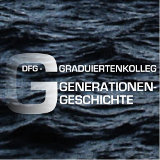Abstract Gerulf Hirt
It is astonishing that the professional group which generated prolonged confidence in products and brands across generations of consumers, remained hitherto broadly anonymous in economic history. Considering the far reaching social, economic and entrepreneurial criticism and scepticism against economic advertising and its creators until the 20th century, the advertising business was still suffering itself from a lack of professional prestige in 1933. It is true, advertising experts strove to advance their field as an accepted and primarily self-determined profession, but without seeking personal public prominence. On the one hand, they acted as some kind of "ghostwriters" (Rainer Gries) in the sense of their influence on the economy, the political sphere, society and culture as a whole. Just because of their occupational function, they needed to abstract from their "self" – that means they were forced by occupation to an "externalisation of their self" (Dirk Schindelbeck) – in order to empathise as closely as possible with the wants and needs of the anonymous "mass of consumers". On the other hand, they yearned to live out their own and self-determined creativity as an accepted occupational type at the interface between producers and consumers.
This PhD-project concentrates on the investigation of the German advertising experts as a developing professional as well as generational culture from National Socialism up to the early Bonn Republic of the 1950s and 1960s. The label of "the" advertising experts subsumes all types of creative actors in this field (Werbungschaffende), but the focus will be on advertising consultants and ad directors.
The projects aims to investigate the formation of the business branch as a whole, in particular the promotional self-perception and (imagined) external perception over time in their relation to politics, society, economy, and culture. This approach will be linked to the question whether time-specific and collateral factors can be identified in the making of this profession. This project seeks to combine the methodologies of discourse and media analysis with aspects of communication science. It will aim at establishing a collective biography by looking more closely at a core sample and by providing the empirical data for a prosopographic study. This will help to identify strategies of professionalization as well as a generational sense of belonging to a closely-related group of experts.
It is believed that – in spite of different forms of socialisations and occupational entry dates – the occupational cohort (1890-1899) which joined the ad occupation roughly since the mid of the 1920s and the occupational cohort (1900-1912) which entered the ad industry approximately since the mid of the 1930s shared some kind of "generational potentiality". They were defined, it as assumed, by an inferiority complex due to their self-attribution to a stigmatised occupational area. These emotional mind-set evoked time-specific strategies of compensation (for example narcissistic speech and fantasies of omnipotence) and strategies of (mal)adjustment. Before and after 1933 the advertising experts saw themselves in relation to three distinct groups: First, to the "jewish" actors in the field of advertising during the "Kaiserreich" which were openly vilified after 1933. Second, they set themselves up as partners of the NS-propagandists, who managed to claim success from an ex post-perspective. Third, there was a strong affiliation to the superior British and US-American advertising agencies and specialists. In face of the "seizure of power", the first cohort (1890-1899) generated a kind of imagined identity, which went beyond the basic feeling of belonging to the same occupation. The new head of the "Reich Ministry for Public Enlightenment and Propaganda", Dr. Joseph Goebbels, had promised advancement and professional status. These feelings of professional achievement were passed on to the younger cohort, even though it experienced some modifications over time. This led to a "collective" sense of professional "mission", which was handed on by the younger cohort well into the Bonn Republic. It was only then that interactions between Americanisation and the former NS-organisation of the ad industry were put into question.
Beside the merely economic incentives to achieve professional status, perhaps it is possible to identify a deeper quest for professional self-promotion, which linked the two occupational cohorts during the dynamic transition from National Socialism into the early Bonn Republic in a combined "generational" culture of experts.

